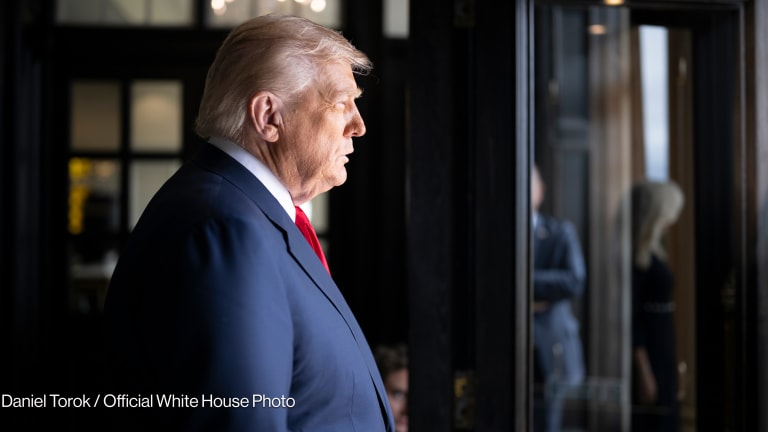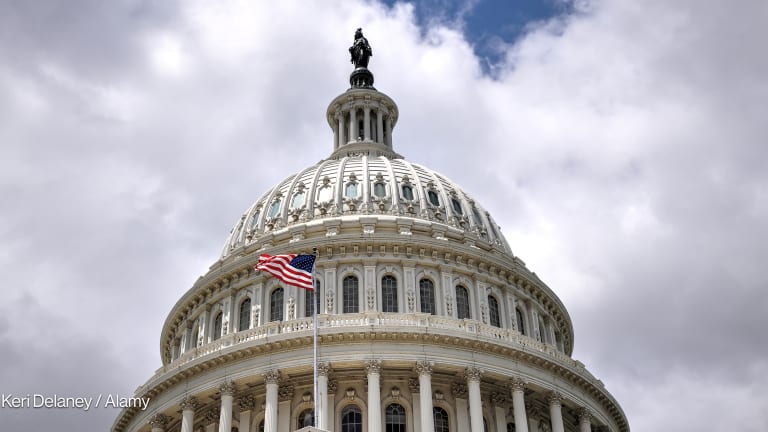
WASHINGTON — When it comes to government reform proposals, lawmakers don’t appreciate being kept in the dark. That was evident again Wednesday when U.S. Democratic and Republican congressional members voiced their frustration at the lack of information they have received about the Trump administration’s plans to reorganize U.S. foreign affairs agencies.
U.S. Agency for International Development Administrator Mark Green appeared before the House Appropriations Subcommittee on State and Foreign Operations — his first public congressional appearance since he was confirmed by the U.S. Senate in August. While lawmakers from both parties reiterated that Green has their support, they also stressed that time is running out for the administration to bring Congress on board with its reform agenda for USAID and the State Department.
“Here we are 11 months into the administration and we don’t yet know even the parameters of the supposed reorganization that is being planned. This is more than passing interest. This needs to be aired out, and Congress needs to be a part of that airing out,” said Kentucky Rep. Hal Rogers, the Republican chairman of the House committee.
Green responded that USAID has briefed the House subcommittee staff on “a couple of the measures that we’re looking at,” and he explained that the Office of Management and Budget has 180 days to review the redesign plan that was submitted to them on September 12.
“In terms of what comes out the other side, to be honest, it’s premature. But you will absolutely be consulted as we go,” Green said.
The ranking Democrat on the committee, New York Rep. Nita Lowey, pressed Green on her concerns about how the administration’s eagerness to cut foreign affairs spending is already affecting the implementation of global development programs.
Lowey referred to “reports from implementers” who have complained that USAID funding is “being delayed or cancelled with the administration citing budget uncertainty.” She expressed concern about the administration’s decision to put on hold its Development Innovation Ventures program, the scaling back of Feed the Future food security programs in some countries, and the curtailing or cancellation of education and health programs.
“Do I have your commitment that [fiscal year 2016 and 2017] resources are being fully implemented according to the agreements reached with Congress?” Lowey asked the USAID chief.
Green suggested that some of the funding delays might be due to a late fiscal year 2017 omnibus budget agreement — although Lowey pushed back that the money she was referencing was appropriated in fiscal year 2016. Green said that he would be happy to convene a meeting with implementing organizations who have reported funding delays and cancellations.
Lowey also asked Green to explain USAID’s decision — first reported by Devex — to cancel 97 foreign service officer positions. The agency informed applicants to those positions — some of whom had undergone a two-year application process — of the decision in an email last week.
“With respect to the story that you’re referencing, we have not eliminated positions. We are still under a hiring freeze … Before I arrived at this position, we had asked for an exception for that class that was involved, and it was denied,” Green said.
Lowey voiced concern that uncertainty around policy and hiring has caused qualified foreign affairs candidates to move on to other opportunities, “because they don’t know what’s happening next.”
“I am extremely concerned. I have been working on these programs a long time. I have never experienced anything like this,” she said.
Earlier in the hearing Lowey expressed her deep opposition to the Trump administration’s expansion of the so-called global gag rule, which now blocks any global health funding to organizations that provide information about or access to abortions.
Green updated the committee on the status of an internal State Department review of the impact of the expanded global gag rule, which Secretary of State Rex Tillerson has promised. Green told the committee that he expects to see the report this month, and that he will share it with Congress when USAID receives it.
The USAID administrator offered a few additional insights into where he has been prioritizing his efforts during the first three months of his tenure.
Green informed the committee that he is personally looking for ways to expand the reach of Power Africa, a bipartisan effort launched during the Obama administration to increase access to electricity in Africa. He is also working to deepen USAID’s engagement with the private sector, so that business partners can engage in program planning from the outset, not just as attachments to a project that has already been designed.
Green told the committee that what he has been struck by most since entering the job is the extent of humanitarian need that currently exists in the world.
In response to Iraq’s refugee and internal displacement crisis, the agency is issuing a “broad agency announcement,” a procurement tool that allows USAID to partner with private and public actors to find innovative solutions to complex challenges — in this case helping to facilitate the voluntary return of displaced people to Iraq’s Ninewa Plain.
Solutions to some other humanitarian crises remain elusive. Asked how USAID is responding to a grave and deteriorating situation in Venezuela, Green said that dangers on the ground have limited the agency to supporting human rights groups and contingency and scenario planning.
“The humanitarian catastrophe is occurring. It’s happening before our eyes,” Green said.
Read more international development news online, and subscribe to The Development Newswire to receive the latest from the world’s leading donors and decision-makers — emailed to you free every business day.








